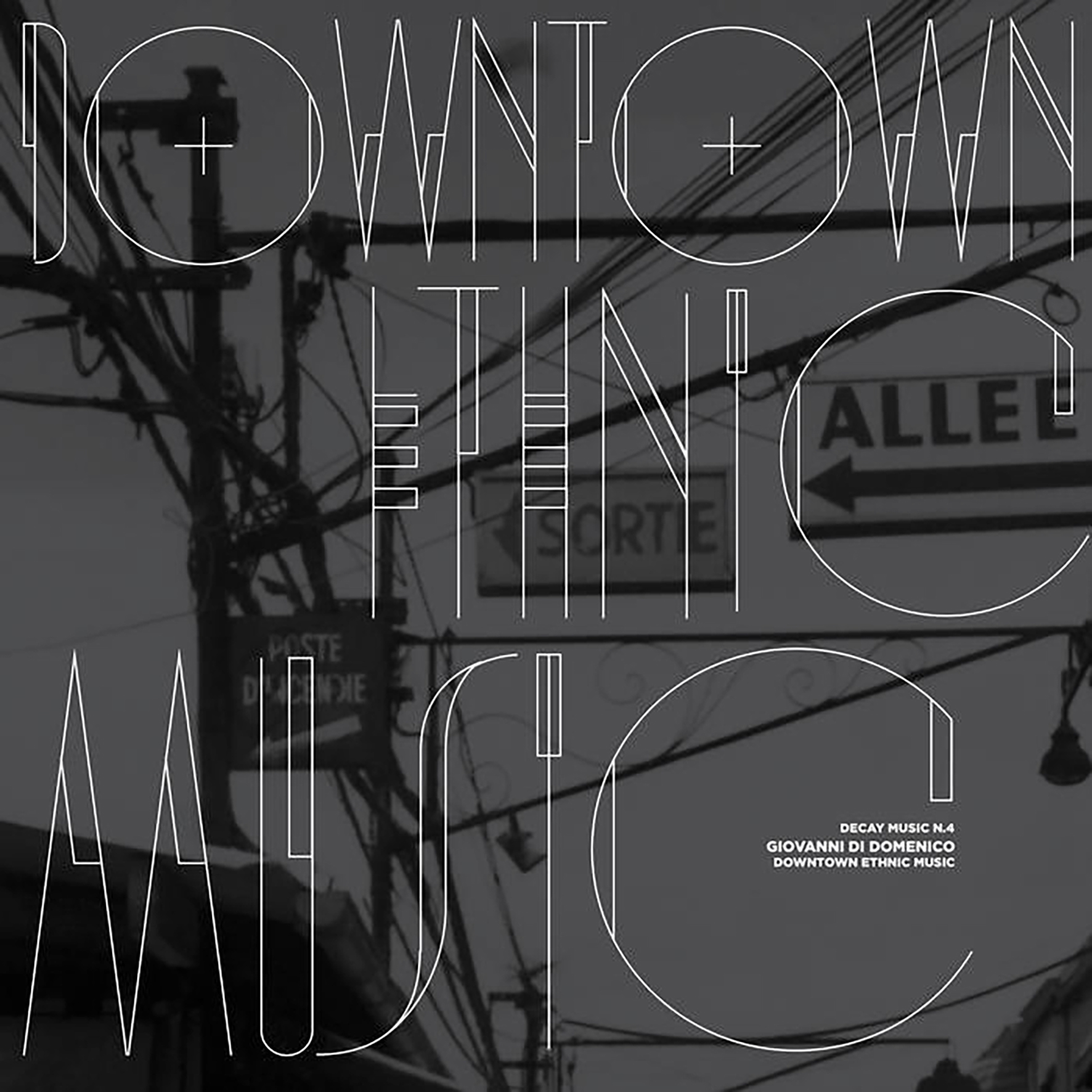Giovanni Di Domenico, "Decay Music n. 4: Downtown Ethnic Music"
 I believe this is Di Domenico's first appearance on Die Schachtel, but the Brussels-based pianist/composer has had quite a prolific and fascinating career, racking up collaborations with a wildly varied array of iconic artists ranging from the ubiquitous Jim O'Rourke to free jazz sax titan Akira Sakata to Nigerian drum god Tony Allen. Given that pedigree, it is a bit of a surprise to see him turn up in a series of ambient albums, but the strange and eclectic Downtown Ethnic Music is too much of a freewheeling and hallucinatory experience to fit comfortably in that milieu (or any milieu at all, really). That said, the album is something of a spiritual (but not stylistic) descendant of Jon Hassell's "fourth world" vision, as Di Domenico set out to reimagine "the future of urban music" with a varied and eclectic host of collaborators. While I sincerely doubt the future of urban music will be anything like the kaleidoscopic and boundary-dissolving psychedelia of this album, Di Domenico has certainly managed to conjure up some truly unique and alien-sounding gems in the attempt.
I believe this is Di Domenico's first appearance on Die Schachtel, but the Brussels-based pianist/composer has had quite a prolific and fascinating career, racking up collaborations with a wildly varied array of iconic artists ranging from the ubiquitous Jim O'Rourke to free jazz sax titan Akira Sakata to Nigerian drum god Tony Allen. Given that pedigree, it is a bit of a surprise to see him turn up in a series of ambient albums, but the strange and eclectic Downtown Ethnic Music is too much of a freewheeling and hallucinatory experience to fit comfortably in that milieu (or any milieu at all, really). That said, the album is something of a spiritual (but not stylistic) descendant of Jon Hassell's "fourth world" vision, as Di Domenico set out to reimagine "the future of urban music" with a varied and eclectic host of collaborators. While I sincerely doubt the future of urban music will be anything like the kaleidoscopic and boundary-dissolving psychedelia of this album, Di Domenico has certainly managed to conjure up some truly unique and alien-sounding gems in the attempt.
The opening "Gap-Filling" is a half-great/half-maddeningly teasing introduction to the album’s elusive and chameleonic aesthetic, as it makes me feel like I managed to just catch the final spaced-out minutes of an intense performance by an experimental guitar/free jazz drummer duo. Regrettably, drummer João Lobo never makes a prominent return, but neither does anything else from that opener, as Di Domenico's imagined future cities feel like a surrealist hall of mirrors. For example, the following "Yoghurt to Yoga" resembles a tense nightmare about an exotic ritual in a distant temple, while "SKJ" resembles a tonally unpredictable retro-futurist synth reverie. At other times, the album resembles a haunted and deranged carnival, a stiltedly funky krautrock jam, and a mash-up of old sci-fi film soundtracks. The latter, "Teratology," is definitely the most strikingly bizarre and "outer limits" moment on the album. In fact, it felt even more so once I realized that it was composed and performed (with an actual choir) and NOT merely a collage of samples (not a pure one, anyway). At its peak, "Tetralogy" calls to mind the cacophonous scene one might imagine if The Shining, 2001, and Solaris crashed into a modern dance troupe and a short wave radio enthusiast. Is it good? Possibly. Is it unique? Absolutely. My personal favorite is considerably more conventional, yet eerily beautiful nonetheless: the closing "Soft on Demand," which is basically a mournfully trippy elegy of gloopy classic sci-fi synth tones.  Part of its appeal may be because a relatively unmangled melody feels like a safe harbor in a maelstrom of endlessly shifting moods and juxtapositions, but I liked a lot of the maelstrom too. While not all of the phantasmagoric urban futures conjured within Downtown Ethnic Music quite hit the mark for me, all are certainly imaginative and vividly realized, which makes this is a solid headphone album for those with a taste for the unusual.
Samples can be found here.



